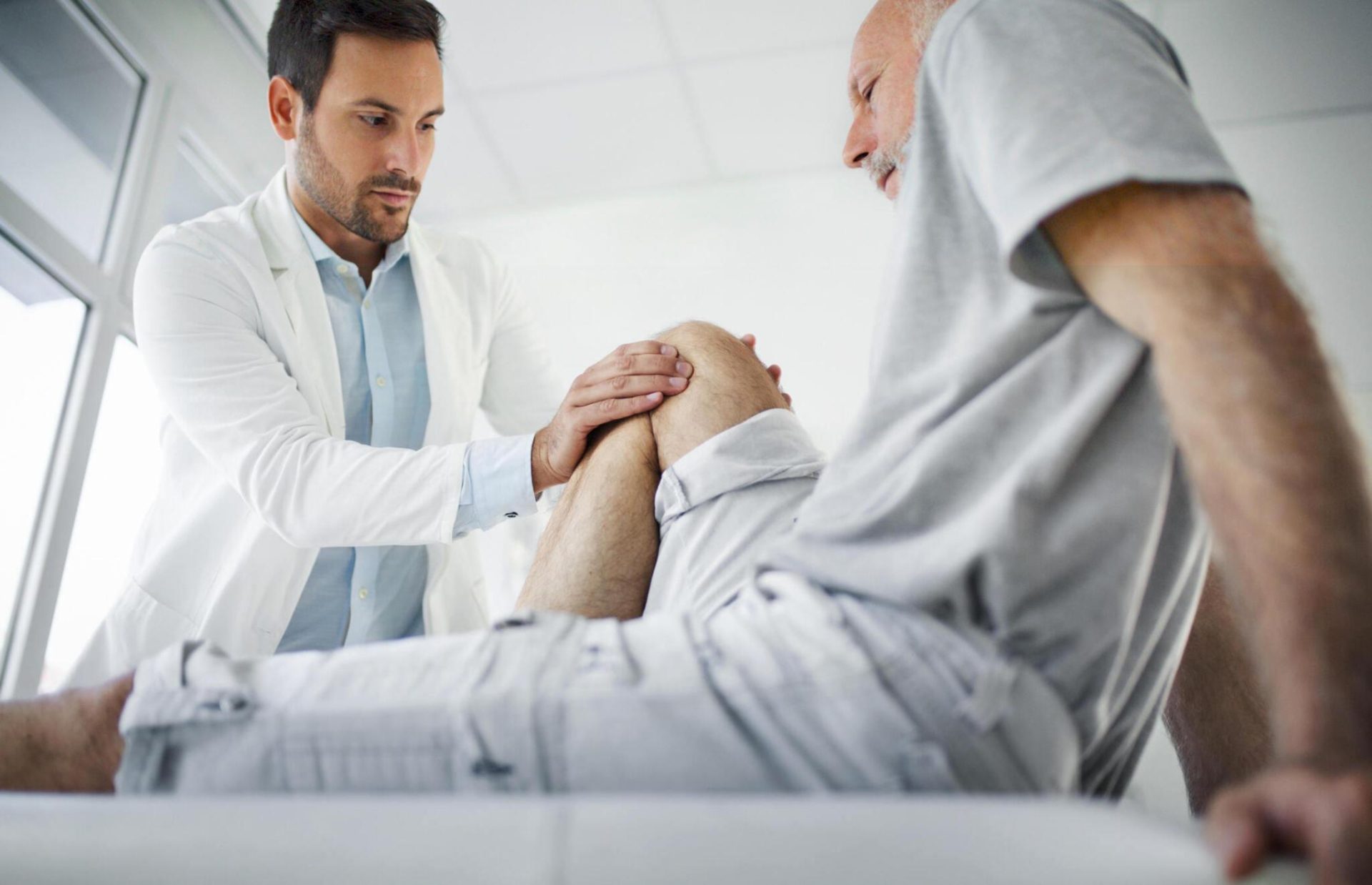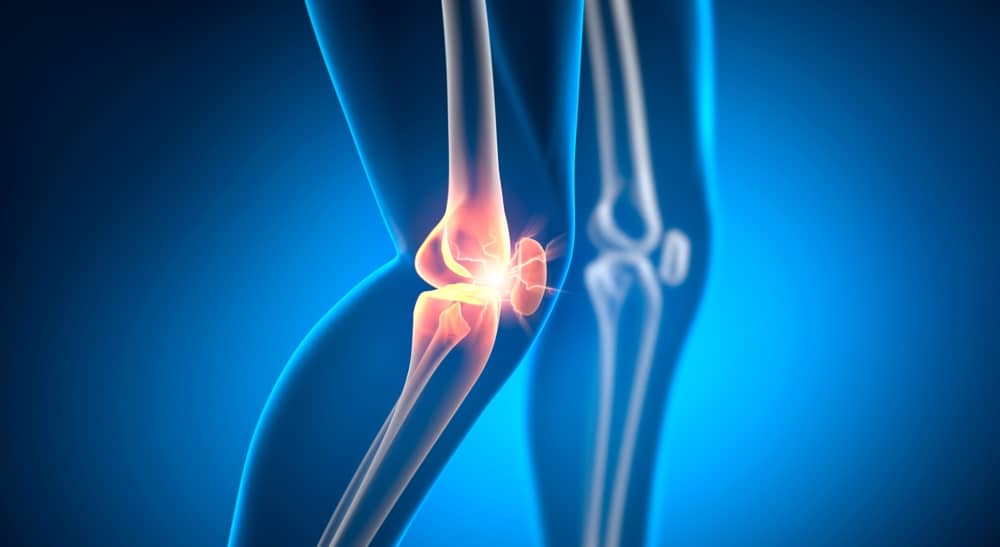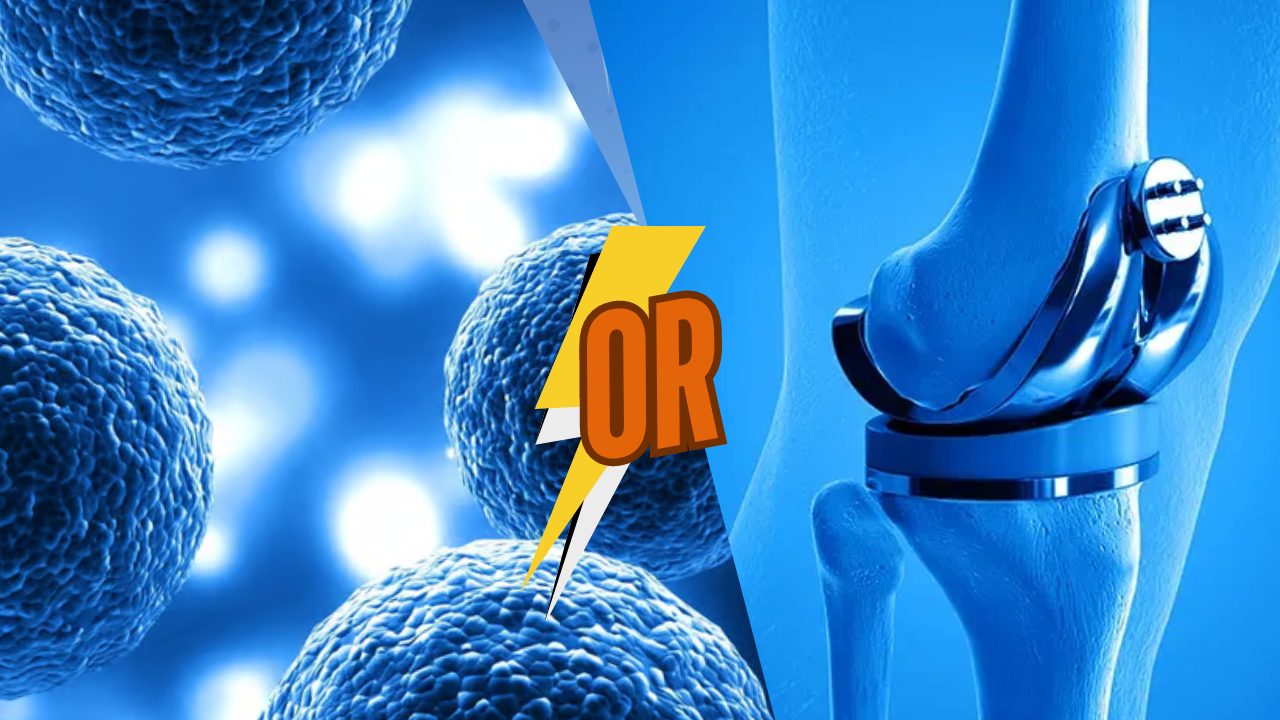- Home
- About Us
- Book Appointment
- Treatments
- Alzheimer’s Disease
- Anti-Aging
- Autism
- Autoimmune Disorders
- Back Pain
- COPD
- Crohns Disease And Ulcerative Colitis
- Erectile dysfunction and Penis enlargement
- Fibromyalgia
- Hip Pain
- Knee Pain
- Lupus
- Lyme Disease
- Multiple Sclerosis
- Muscular dystrophy
- Parkinsons Disease
- Peripheral And Diabetic Neuropathy
- Post Cancer Treatments
- Post Stroke Recovery
- Psoriasis
- Rheumatoid Arthritis
- Shoulder Pain
- Join The Club
- Aesthetics
- Blog
- Contact Us
Is persistent knee pain upsetting your daily rhythm? Explore the unmatched potential of stem cell treatment for knees, a modern-day medicinal breakthrough that stimulates the body’s regenerative self-healing power, without the need for surgery.
Say goodbye to enduring knee discomfort and reclaim the natural healing power of your body without spending a fortune or months on treatment and recovery.
1. What is Stem Cell Therapy for Knee Pain?
Stem cell treatment is a regenerative approach to treatment, offering hope to millions around the globe suffering from osteoarthritis and chronic knee pain. This non-invasive procedure promotes the development of new tissues and the restoration of the damaged ones. The introduction of human umbilical cord tissue-derived (HUCT) mesenchymal cells directly into the knee joint fosters healing and regeneration.
Stem cell therapy for chronic knee pain utilizes the inner self-healing capacities of the joint, providing a less painful and shorter alternative to knee replacement surgery. Contemporary research indicates that stem cell therapy activates the joint’s damaged tissues to undergo self-repair. Widely regarded as a regenerative solution, it targets inflammation, alleviates joint pain, and potentially does away with the necessity for knee replacement operations, especially among the elderly.
While knee pain and osteoarthritis (OA) generally afflict older individuals, the young are now fully exempt, experiencing pain and discomfort in their joints due to sports injuries or accidents.
Therefore, if you wish to harness this immense potential of medical science and receive stem cell treatment for knee pain in Mexico, the US, Canada, and other regions, book a call with our stem cell specialists today.
2. Understanding Knee Pain – A Global Health Issue
Knee joints are among the most complex and powerful movable components of the human body. They provide support to the body’s weight and facilitate the motion of the lower limbs. Their proper functioning is essential for sitting, standing, walking, running, and basically all other leg movements.
However, due to the numerous comforts and facilities of modern life, lack of exercise, and obesity, along with old age, medical practitioners are witnessing a sharp rise in the number of patients with knee pain and osteoarthritis. Recent medical research suggests that over one-third of Americans are suffering from chronic knee pain and around 21.2% of all adults (roughly 53 million) have been diagnosed with arthritis of some type or the other. The global picture is a grim one as well, with significant percentages of individuals above the age of 40 reporting issues of chronic knee pain.
Unfortunately, there is a limited number of treatments for osteoarthritis and other conditions that cause knee pain. Cortisone injections, which are aimed at reducing pain and swelling, can often lead to secondary tissues at the injection site. This poses considerable risks such as infection in the joints, nerve damage, skin thinning, temporary aggravation of pain, weakened tendons, bone thinning, and bone necrosis.
The alternative to this is knee replacement surgery which carries the risks of standard or local anesthesia, invasive procedures, and anti-inflammatory drugs, one of the leading causes of acute liver damage in the USA and Canada.
Hence, stem cell therapy for knee pain is being considered far and wide as a feasible alternative to more expensive and invasive treatment methods. However, understanding how stem cell therapy works, its associated recovery periods, the various conditions it can address, and the criteria for eligibility are to be considered carefully before you opt for this treatment.
3. Symptoms of Osteoarthritis and Chronic Knee Pain
The manifestations of osteoarthritis vary from individual to individual and can range from mild to severe, based on the patient’s age. Predominantly, knee pain and intermittent inflammation stand out as the most observable symptoms, with some patients experiencing pain-free intervals. Beyond pain, patients may report stiffness, swelling, weakness, and joint creaking.
These symptoms hinder free movement, as joints play a crucial role in supporting the upper body and providing stability during activities such as bending, walking, running, crouching, climbing, and jumping. Any injury or damage to bones, muscles, tendons, ligaments, or cartilage within the joints can lead to pain and inflammation, reducing the range of motion. This limitation can escalate into ligament laxity and increased muscle wasting, ultimately compromising the strength and stability of the knees.
Knee pain stemming from osteoarthritis primarily results from the biochemical breakdown of joint cartilage. Osteoarthritis is categorized into primary and secondary types based on its underlying causes.
Primary Osteoarthritis: This prevalent type arises from the gradual wear and tear of tissues in the knee joints over time. Aging is a significant factor, with the longer utilization of joints associated with an increased likelihood of developing osteoarthritis.
Secondary Osteoarthritis: This type is influenced by external factors such as injuries, accidents, joint trauma, existing ailments, inherent joint deformities, infection, and metabolic dysfunctions. Unlike primary osteoarthritis, symptoms of this type may not be exclusive to older individuals; young people can also experience chronic knee pain due to these underlying reasons.
4. What Conditions Can Stem Cell Therapy for Knee Pain Treat?
Our treatment process at Life Altering Stem Cell Therapy Institute is effective for multiple knee joint issues and conditions including osteoarthritis, cartilage degradation, and other acute cases such as ACL (anterior cruciate ligament), PCL (posterior cruciate ligament), MCL (medial cruciate ligament), or meniscus problems.
For osteoarthritis and cartilage issues, stem cells facilitate the rebuilding of tissues while for the mentioned ligament conditions, they can speed up the recovery process after surgery or treatment.
Given that cartilage lacks the ability to regenerate, individuals have only the amount they are born with. Once years of physical activity erode cartilage from the joints, there has traditionally been no means of replacement or regrowth. Stem cell treatment for knee pain has empowered physicians to introduce regenerative master cells that can transform into previously limited cell types. This boosts the joint’s ability to rebuild and restore itself.
5. How Does Stem Cell Therapy for Knees Work?
While it sounds like a rather intensive procedure, stem cell therapy is fairly straightforward and is minimally invasive. At Life Altering Stem Cell Therapy Institute, all our treatment procedures are planned individually and supervised by Dr. Josemaria Torres Farber who has over 25 years of experience in the field of surgery and stem cell medicine. For our stem cell therapies, we use only allogeneic mesenchymal stem cells from the human umbilical cord tissue (HUCT) of medically tested mothers following healthy and normal births.
The mesenchymal stem cells (MSCs) are isolated from the umbilical cord and used to prepare injections. Stem cells are injected directly into the patient’s knee joints through intra-articular infusions.
Once they reach your cartilage and knee bones, the stem cells start exerting their regenerative and healing influence in the local tissue environment. The working mechanisms of MSCs include reducing inflammation and scarring (fibrosis) and enhancing immune system functions.
After the process is completed, our medical team provides comprehensive supportive care and treatment to ensure the quick recovery of our patients.
6. After Stem Cell Therapy – Recovery and Follow-Up
The exact duration of the treatment process depends on the healthcare facility administering it and the level of knee damage. Some clinics recommend a series of separate injections over a period of time with periods of interval.
Our stem cell therapy in Mexico follows a quick and painless administration process that usually takes an hour or two. In most cases, our stem cell recipients are up and walking within 4 to 5 days after getting treated.
Initially, some patients may have minor discomfort while performing joint movements and can need assistance. We offer first-rate follow-up and post-care support to all our patients after they receive stem cell therapy.
We stay committed as your dedicated partners well beyond the completion of the treatment process and after you return home. Our ongoing support extends to your home environment through regular follow-up sessions. These sessions are scheduled at regular intervals to monitor your progress, provide assistance, and address your further questions and concerns.
Read Also: The Mysterious World of Stem Cells Unveiled
7. What is the Cost of Stem Cell Treatment for Knee Pain?
The cost of stem cell therapy, once again, depends on the institute you are getting the treatment from, exact physical conditions, the patient’s medical history, and other details regarding the treatment process. Our foremost priority is the well-being of our patients. Our focus is to offer them a cost-effective treatment that profoundly benefits their lives and day-to-day activities. The pricing of our treatment is influenced primarily by the following factors.
- The exact nature and severity of the patient’s knee condition
- Underlying or pre-existing conditions such as genetic disorders, past surgeries, medications, and so on
- The patient’s height and weight for body-mass index
- Other factors beyond immediate control such as fluctuations in medicine prices, equipment, shortages, etc.
For the exact details regarding pricing and treatment durations, book a consultation and get in touch with our stem cell experts today.
8. Why Choose Life Altering Stem Cell Therapy Institute
Our team, headed by Dr. Josemaria Torres Farber, consists of stem cell specialists with years of training and experience in the USA and Canada. With their in-depth knowledge of treating individuals with osteoarthritis and joint inflammations, they can get a comprehensive understanding of each separate case. This aids in recommending, planning, and executing a foolproof treatment and post-therapy care procedure depending on the severity of the patient’s condition.
If you’re looking to reclaim your health with lasting relief from chronic knee pain and discomfort, schedule a call with our experts today.







